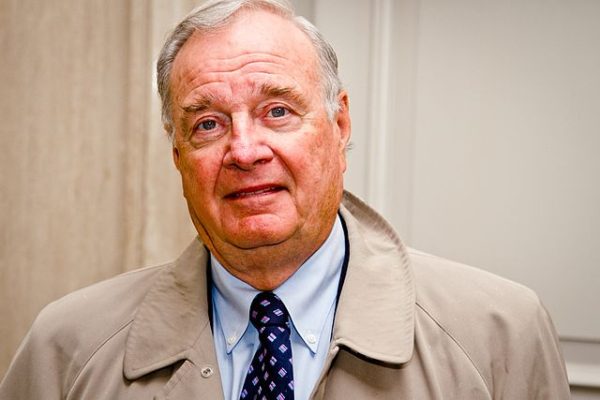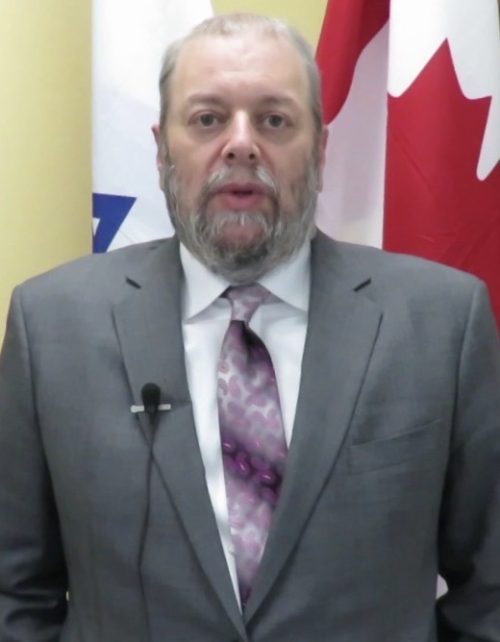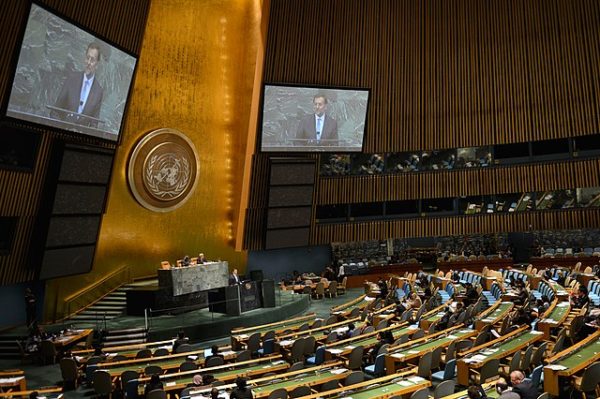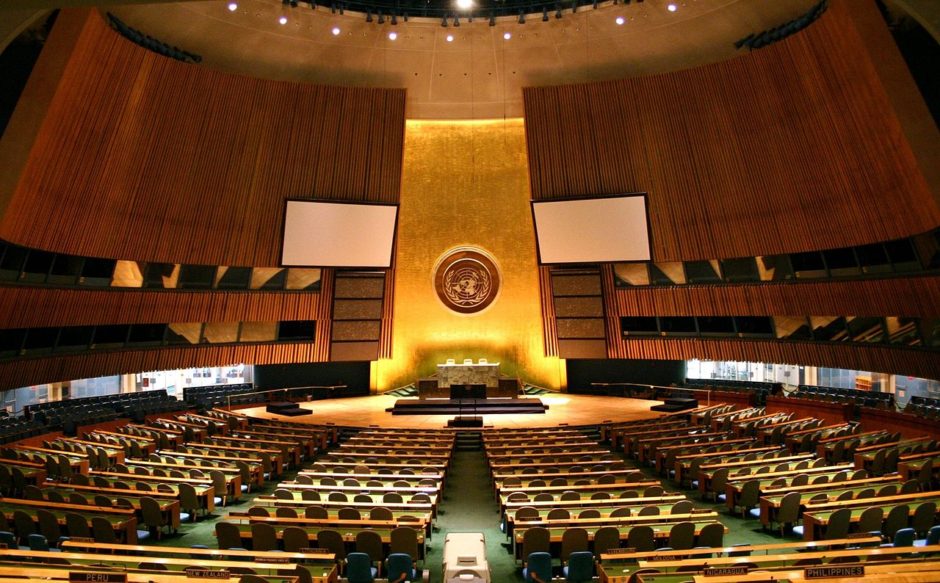Canada’s endorsement of a United Nations General Assembly resolution on November 19 calling for Palestinian statehood and the end of Israel’s occupation of the West Bank has been deplored as “ill-advised” by a major Canadian organization, the Center for Israel and Jewish Affairs, that claims to represent Jews in Canada.

Israel’s Foreign Ministry declined to comment on Canada’s position, but one can safely assume that the right-wing Israeli government was disappointed.
By contrast, Canadian supporters of a two-state solution believe that this resolution, while somewhat flawed, is valid and could be helpful in advancing the prospects of a peaceful resolution of Israel’s conflict with the Palestinians.
Sponsored by Egypt, North Korea, Zimbabwe, Nicaragua and the Palestinian delegation, and tabled at the UN’s Third Committee, it won the support of 165 countries. Only five member states — Israel, the United States, Micronesia, Nauru and the Marshall Islands — voted against it. Nine nations, including Australia and Guatemala, abstained.

Until about 15 years ago, Canada would normally abstain when such resolutions were presented. Changing its policy under the Liberal Party premiership of Paul Martin, Canada began voting against these resolutions. The Conservative government of Prime Minister Stephen Harper accelerated this process. The current prime minister, Justin Trudeau, a Liberal, continued along this path.
So when Canada came out in support of the UN’s latest Mideast resolution a few days ago, the Center for Israel and Jewish Affairs was incensed, calling it “a dramatic departure from a 10-year record of principled opposition to UN resolutions that a single out Israel for condemnation and ignore Palestinian intransigence and provocations aimed at sabotaging efforts to advance peace and reconciliation.”

In a blog piece, the center’s president and chief executive officer, Shimon Fogel, wrote, “On November 19, Canada made a startling and ill-advised decision to upend its long-standing UN strategy concerning Israel and renege on its undertakings to Canadian Jewish voters. Coming in the aftermath of U.S. Secretary of State Mike Pompeo’s comments about the legality of Jewish communities in disputed territories, the decision was a political about-face that felt like a betrayal.”
Fogel added, “With this vote, Canada chose to validate the Palestinian rejectionism for which the United Nations has, perversely, become the chief enabler and cheerleader. Its decision also contradicts explicit commitments, made by Liberal candidates during the recent election, to maintain Canada’s principled opposition to the twenty annual UN resolutions whose sole purpose is to isolate and delegitimize Israel.
“For the last fifteen years, through successive Liberal and Conservative governments, Canada’s voting policy at the United Nations was grounded in principled opposition to UN resolutions that singled out Israel for condemnation. These resolutions ignore Palestinian intransigence and provocations aimed at sabotaging efforts to advance peace and reconciliation.”
The Canadian government justified its stance on the grounds that the two-state solution requires institutional support, particularly now.
“Canada is committed to the goal of a comprehensive, just and lasting peace in the Middle East, including the creation of a Palestinian state living side by side in peace and security with Israel,” Krystyna Dodds, a spokesperson for the Canadian foreign ministry, told The Times of Israel.

“In keeping with Canada’s longstanding position, it is important at this time to reiterate our commitment to a two-state solution and the equal rights and self-determination of all peoples,” she went on to say. “At a time when it is increasingly under threat, it is important for Canada to underscore our firm commitment to a two-state solution. Canada maintains our strong opposition to the singling out of Israel for opprobrium at the UN, and has voted against the vast majority of these yearly Israel-related votes.”
Dodds neglected to mention that Canada is seeking a temporary seat on the Security Council starting in 2021 and needs the backing of Arab and Muslim countries to achieve this objective.
Two progressive groups, JSpace Canada and Canadian Friends of Peace Now, endorsed Canada’s decision to support the resolution.

Karen Mock, president of JSpace, said, “At a time when the United States has made a drastic change in its position on Israeli settlements in the West Bank, it is critical for Canada to step up, reinforce both Jewish and Palestinian rights to self-determination, and proudly state its support for the two-state solution. In spite of its flaws, we would be wrong to think this is a harbinger of decreased Canadian support for Israel.
“The current government of Canada has a strong record on Israel and the Jewish community — from modernizing the Canada-Israel Free Trade Agreement, adopting the IHRA definition of antisemitism, issuing the historic St. Louis apology, and unequivocally supporting Israel’s right to defend itself. The recent vote at the UN does not change the Canadian government’s policy of support for Israel, and should not be construed as such.”
“The resolution for Palestinian solidarity is far from perfect. As many (people) in the Canadian Jewish community have (said), the resolution’s language lacks nuance — it does not affirm Israel’s right to secure borders, it fails to recognize the complex status of Jerusalem, and it does not hold Palestinians accountable for any past failures in negotiations and for continued bombing of civilians. Neither does it reaffirm the right of the Jewish people to self determination. However, as progressive Zionists, JSpaceCanada cannot accept the status quo in the Israeli/Palestinian conflict and the occupation.”
Canadian Friends of Peace Now was just as supportive of Canada’s shift at the United Nations:
“We commend the Canadian government for sending a message on the urgent need to save the two-state solution through its recent vote on the Israeli-Palestinian conflict … The resolution makes clear reference to the two-state solution, the right of all states in the region to live in peace within secure and internationally-recognized borders, and the principle of trading land for peace.”
The statements released by JSpace and Canadian Friends of Peace Now are grounded in reality, fairness, a desire for Israel to remain a democratic Jewish state, and a quest for justice insofar as the stateless Palestinians are concerned.
Contrary to Fogel’s claim, which supports the status quo and Israel’s occupation of the West Bank, Canada’s endorsement of a two-state solution is not a betrayal of Israel or the Jewish community, but rather a reaffirmation of its fair and balanced policy with respect to the Arab-Israeli dispute.
